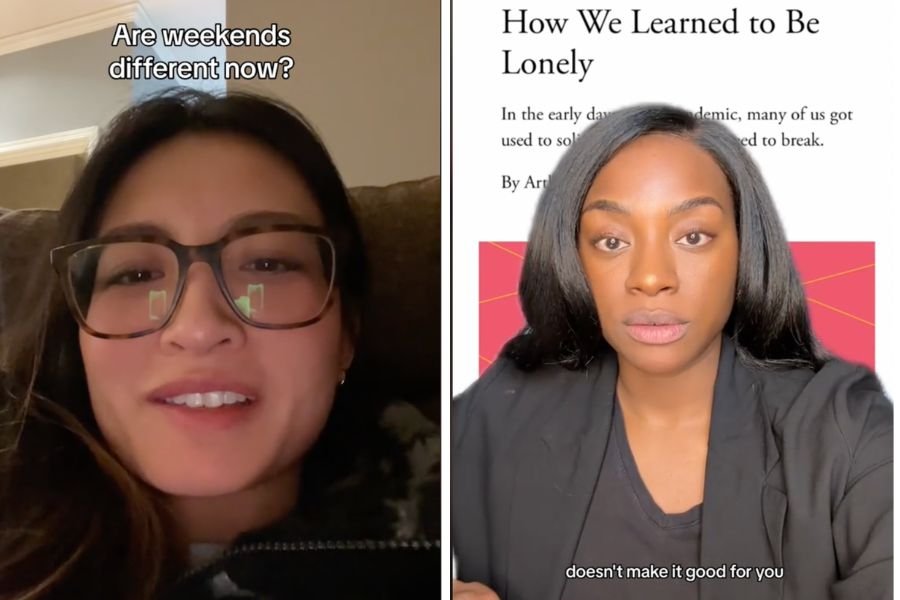Is your picture of an ideal weekend staying at home, noshing on snacks and television rather than actual peopling?
If the answer is yes, you’re not alone. Well, you might be physically, but not in your preference to be antisocial Friday through Sunday.
Recently, a woman named Christina Kwong admitted in a TikTok clip that weekends felt “different” now, that she was perfectly content with “a slice of cake and a maybe can of sparkling water” in lieu of going out.
She wondered if others felt the same, and whether this was just a result of getting older or some bigger phenomenon.
Kwong’s video got a huge response online which began a discussion about how habits built during the pandemic plus financial constraints were largely to blame.
“If I leave my house I spend at least 100 dollars,” one viewer said. “Everything is so expensive it’s not fun anymore.”
Another wrote, “2020 made a lot of us really value the peace of being home, to which Kwong replied, “I think this is the core of it ?.”
@christinakdub Anyone else just love to do nothing on weekends? Is it age? Or is everyone feeling this way? ? #weekendvibes #weekend #tired #fyp #gettingold #collective #friday #saturday #sunday ♬ original sound – Christina ✨ daily vlogs ✨
And perhaps this latter point isn’t all bad. In a discussion with Business Insider licensed clinical psychologist Yasmine Saad noted that while continued social isolation might be a coping mechanism to modern day anxieties, another factor is that people simply no longer feel social obligation the same way, and are more comfortable embracing “their preferred style of recharging.” Which, in many people’s cases, is of a more introverted nature.
While this might be true, Danielle Bayard Jackson, aka “The Friendship Expert” and author of “Fighting for Our Friendships,” urges that the concept of “learned loneliness” shouldn’t be overlooked either.
Using data from a 2023 article in The Atlantic, Jackson listed off a slew of research findings showing that nearly 60% of people have not returned to pre-pandemic activities, remote work has tripled from 2019 to 2021 and that 35% of people say that socializing is less important to them.She then cited a report from the American Psychological Association saying that finances were the #1 source of stress for 2023.
@thefriendshipexpert #stitch with @Christina ✨ daily vlogs ✨ ♬ original sound – Danielle Bayard Jackson
Jackson acknowledged that all these factors causing folks to want to stay home were valid, but argued that just because this behavior is more common, “it doesn’t make it good for you,” reiterating how countless studies show the direct impact social connectedness has on our well-being.
In essence, getting back into a healthy social habit is similar to re-adopting any healthy habit. There’s a period of resistance and discomfort before the benefits return.
Jackson then clarified that making meaningful social interactions doesn’t have to be getting drunk with friends on weekends, but rather getting involved in things that interest you, with people who energize you. Sometimes with close friends, sure. But other times, just community.
While there is a lot of nuance involved with this topic, and certainly no one-size-fits all solution, discernment and balance seems to be helpful tools. Knowing exactly why we might be saying no to weekend plans, plus making sure to round out our schedules with interactions that matter to us.
In other words, there’s nothing wrong with a Friday night filled with cake slices enjoyed in solitude now and then…but maybe not every night.







































